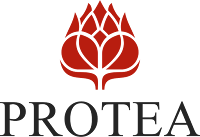Home > The ATTC/NIATx Service Improvement Blog > Addiction Docs On Call: Wisconsin Warmline Answers Doctors' Questions About SUD Treatment
August 15, 2018
Maureen Fitzgerald
ATTC Network/NIATx
Say you're a primary care doctor in northern Wisconsin treating a patient with alcohol use disorder who is also using methamphetamine. Your med school training may not have covered substance use disorder treatment in depth, and you're not sure of the best treatment and prevention options for your patient. But thanks to a new warmline just launched in Wisconsin, you can pick up the phone and get immediate advice from an addiction treatment specialist at UW Health and the UW Department of Family Medicine and Community Health.
The warmline is funded by a grant from the Wisconsin Department of Health Services and will operate from 8 a.m. to 5p.m, Monday through Friday. Read more from Wisconsin Public Radio: Hotline Provides Access To Specialists; Believed To Be First Of Its Kind In Nation
 |
| Program for Research, Outreach, Therapeutics, and Education in the Addictions |
Dr. Randy Brown and his team are leading the effort, which will be particularly helpful in Wisconsin's rural areas: as WPR notes, "70 percent of Wisconsin's rural counties lack a provider who is certified to provide medication-assisted treatment for opioid use disorders."
The warmline is one of several initiatives underway in the lab that Brown and his team recently named the Program for Research, Outreach, Therapeutics, and Education in the Addictions, or PROTEA.
Protea is also the name of the flower that germinates after a fire; the protea symbolizes courage, change, and transformation.
"PROTEA is a program for educators and health professionals in training," says Brown. "We are focused on research, outreach, and education in the treatment and prevention of addiction and related issues."
Providers can access the University of Wisconsin Addiction Consultation Warmline at 608-263-3260. Those outside Madison should call toll free: 800-472-0111
Current outreach and education efforts include a Project Echo targeting opioid-related issues in Wisconsin.
"Our Project Echo will bring community providers and opioid experts together for shared learning and case discussions about opioid misuse," explains Brown. "We're hoping that future funding will allow us to expand and help providers take on other substance use issues."
A current research project, Screening in Trauma for Opioid Use Prevention (STOMP) is collecting medical and pyscho-social information from hospital inpatients who have sustained a traumatic injury and who are prescribed opioid medication for pain. The goal is to predict their risk for opioid misuse in the period up to six months after discharge.
"When we determine variables for risk, we want to develop a measurement tool to screen for risk as well as an intervention based on risk factors," says Brown.
Other potential research projects for the PROTEA may include a study of "novel" therapeutics, such as psychedelic compounds, for treatment of opioid and other substance use disorders. Dr. Christopher Nicholas, a member of the PROTEA team, cites promising early data on smoking cessation among long-term smokers after limited doses of psilocybin (the psychedelic component found in some mushrooms) in controlled settings.
"PROTEA is guided by a shared vision of innovating treatment and prevention systems, so that those struggling with substance related issues have timely access to competent, compassionate, and effective care," adds Brown. "As such, work in all facets of the PROTEA mission (research, outreach, therapeutics, and education) are critical to mainstreaming care for substance related issues and creating systems that ameliorate the individual and community-level harms occasioned by risky and problem substance use."
The opinions expressed herein are the views of the authors and do not reflect the official position of the Department of Health and Human Services (DHHS), SAMHSA, CSAT or the ATTC Network. No official support or endorsement of DHHS, SAMHSA, or CSAT for the opinions of authors presented in this e-publication is intended or should be inferred.